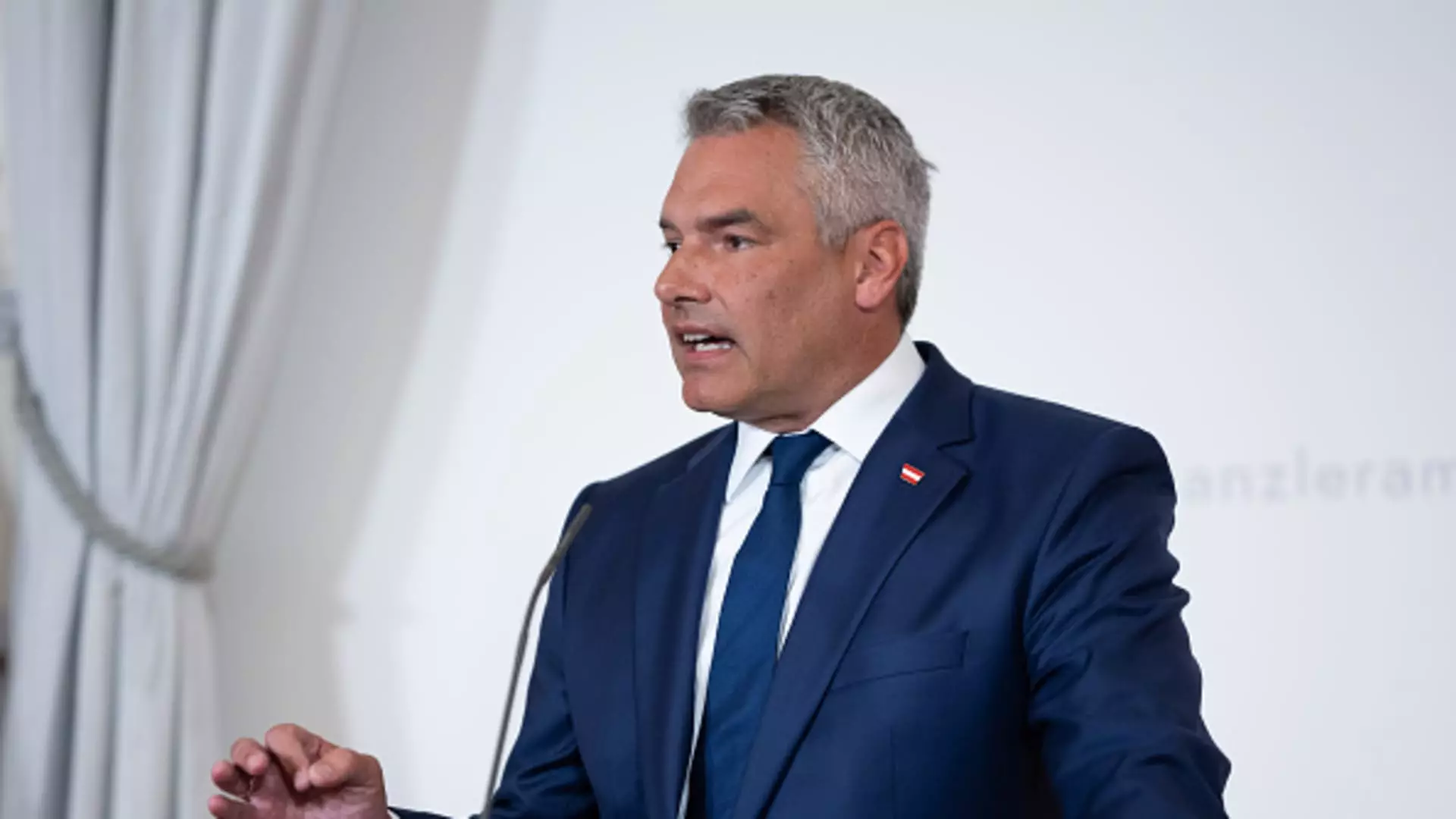The political landscape in Austria has recently been thrust into turmoil following the collapse of coalition talks among the country’s leading centrist parties. This disarray is emblematic of a larger trend across Europe, where governments grapple with the challenges posed by the rising influence of far-right factions. This article explores the implications of these political developments, the failure of coalition negotiations, and what lies ahead for the Austrian political sphere.
On Saturday, Austria’s conservative Chancellor Karl Nehammer announced his decision to step down, which marked a critical turn of events after his attempt to forge a coalition government with two major centrist parties, the Social Democrats (SPO) and the liberal Neos. A pivotal moment arose when the Neos party withdrew from discussions, citing a lack of assertiveness and decisive action on pressing issues. The breakdown of these talks signifies not only the failure of compromise but also reveals the increasing polarization within Austrian politics. Nehammer’s resignation is not merely about political ambition; it’s indicative of the broader instability affecting European governments as they wrestle with unprecedented challenges.
The collapse of negotiations comes roughly three months after the national elections in September, where the far-right Freedom Party (FPO) garnered approximately 29% of the vote. This scenario showcases an essential dilemma: while the FPO has emerged as a significant force, many political factions are reluctant to align with it due to ideological differences. As Nehammer himself articulated, collaborating with FPO leader Herbert Kickl is off the table, highlighting a deep schism in the Austrian political fabric.
The political calculations surrounding the FPO expose an underlying tension. Despite Nehammer’s reservations about Kickl, the conservative People’s Party (OVP) is now faced with the prospect of either tolerating a partnership with the far-right FPO or navigating a precarious route towards snap elections. The phenomenon of the FPO’s rising popularity, overshadowing traditional parties like the OVP and SPO, raises serious questions regarding the future of democracy and governance in Austria. The FPO’s increasing support signals a shift in public sentiment, which is often closely tied with broader socio-economic issues, such as immigration and economic disparity—areas that opposition parties have struggled to address satisfactorily.
With Nehammer’s departure from leadership, the OVP will convene to identify his successor. This replacement will play a crucial role in determining the party’s stance towards the FPO moving forward. Many members within the OVP may show a willingness to collaborate with the FPO, echoing sentiments from previous coalition arrangements that functioned between 2017 and 2019. However, history looms large; the dissolution of that coalition due to a scandal involving the FPO serves as a cautionary tale for potential partnerships moving forward.
Meanwhile, the SPO’s leader, Andreas Babler, has attributed the coalition’s downfall to the OVP’s unilateral approach in negotiations. He criticized Nehammer’s party for attempting to curtail benefits for civil servants and refugees, indicating that the public’s trust is eroding as parties navigate these contentious discussions. Babler’s narrative highlights the increasingly fractious atmosphere that has emerged—one where traditional lines of bipartisan agreement are blurring.
The immediate future of Austria’s political scene hangs in the balance. Should Kickl be tasked with forming a government, it will mark a significant shift with implications that extend beyond Austrian borders. The European political landscape has already shown vulnerability to far-right ideologies, and if the FPO gains power, it could embolden similar movements across Europe.
On the flipside, the possibility of snap elections poses its own set of uncertainties. Would this scenario present a chance for change, or would it merely deepen divisions within the electorate? The Austrian President, Alexander Van der Bellen, who faces the unfathomable task of stabilizing the political arena, may soon find himself requiring more than just pragmatic solutions to navigate the complexities of governing against rising populism.
As Austria grapples with its political identity, the question remains: how can stability be restored in a climate fraught with discord? The ongoing turbulence shines a spotlight on the need for parties to not only represent diverse interests but to do so in a manner that fosters dialogue and collaboration, rather than division. The stakes are undeniably high, not just for Austria but for the principles of democracy in an increasingly polarized world.


Leave a Reply